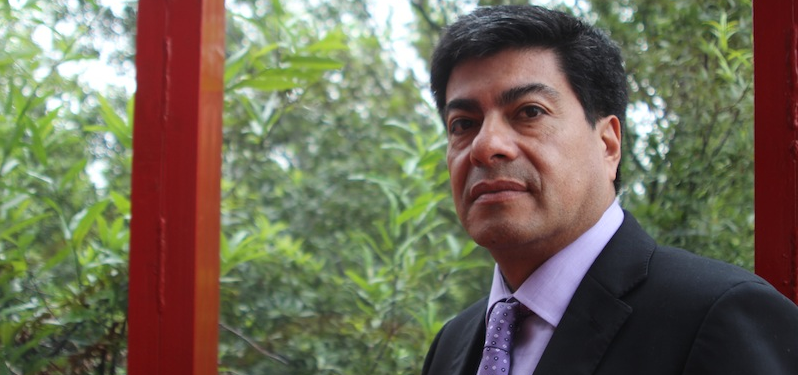OG: What Chile needs is a critical mass, better brains, higher intelligence to be able to add value to the product that we believe is Latin America. We’re a small country of 17 million people with a GDP that I would say is modest. but we have a wealth of natural products enviable of any other country in the world. We’re rich in water, in agricultural development, We’re the second exporter of salmon. We’re rich in the production of meat and milk. But fundamentally we’re exporting many products to more developed countries like raw materials. And the developed countries decide on the value and price. The majority of the power is in their hands so Chile has to make the most of the situation to be more competitive.
News and business analysis for Professionals in International Education
Have some pie!
Óscar Garrido, Universidad de Los Lagos, Chile

The PIE: And one could assume that the more that industry grows, the more demand there will be for skilled workers?
OG: Exploiting our natural resources through sustainable and fair economic growth and protecting the environment should be a policy that Chile upholds. These measures will also generate wealth that will improve the quality of life of our population. In doing so, we will generate higher expectations among the people. The greatest challenge that Chile has is making sure that wealth is invested in its human capital. A strong base in human capital is the greatest wealth and motivation to continue advancing as a country.
What Chile needs is a critical mass, better brains, higher intelligence to be able to add value to the product that we believe is Latin America
The PIE: Is there any sort of investment in human capital happening now?
OG: I think yes. Currently we are focused on creating stronger training policies, four year degrees, higher levels of certified doctorates, larger flow of students toward our competitive universities. But it’s a new development from 20 years ago and we need to give it time. We’re a young nation.
The PIE: Are you optimistic about the elections?
OG: As vice-president of the Andean Country Region for OUI and rector of a university, I’m anxiously awaiting a president who will serve the country. Michelle Bachelet will most likely win. She was president of the country for four years [2006-2010] but I think needed more time. I see her in a better light and her proposals include more resources for the state universities, an agenda for state universities, and plans to use the university as an instrument to develop the country.
The PIE: Where are current mobility efforts focused?
OG: This is a special subject because Chile is the most internationalised country in South America but is always looking not at Latin America but toward the most developed countries. Its largest ties are with America and Canada and to a small degree Mexico. Currently we’re sending students to Asia, England, France, Germany and countries like Finland and Australia. But you also have to understand that inside Chile itself there are a variety of universities that are strong in teaching, research and post graduate work and then there are others that are smaller, regional and aren’t as developed. That’s where a national plan from the state needs to be designed that will create a cooperative system that allows on one side a strengthening of the strongest pieces but on the other side generates policies that also strengthen the weakest areas in Chilean universities.
There has been silence in the HE community for many years about the “no expression” culture that was created during the dictatorship we had for almost 30 years
The PIE: What lines of communication exist between the government and education institutions?
OG: There has been silence in the HE community for many years about the “no expression” culture that was created during the dictatorship we had for almost 30 years. With a blocked economic model that blocks the education system this creates a model that is too neo-liberal so today the system is damaged. The push for social movement and big change is now coming from the civil society. The political parties and the presidential candidates need to listen.
The PIE: How is the Learn Chile campaign going in your opinion?
OG: I think it’ll make Chile more competitive but the most important issue is those students who are doing a doctorate or post-graduate degree abroad have good universities or scientific centres to come home to. I think that’s still a fragile matter. But the efforts to send our students abroad and to somehow attract students to chile, I think is perfect.
The PIE: Do you think the private sector can have any part in meeting Chile’s training demands like it is doing in other developing countries?
OG: Care should be taken with the impact and reach of participation from the private sector because traditionally the private sector is looking for profit. And that doesn’t always converge with a public sector that is looking to stabilise. I respect the benefits that that can bring to other countries but I think we need to evaluate what these alternatives contribute to the new directions the system will take.
Still looking? Find by category:



!